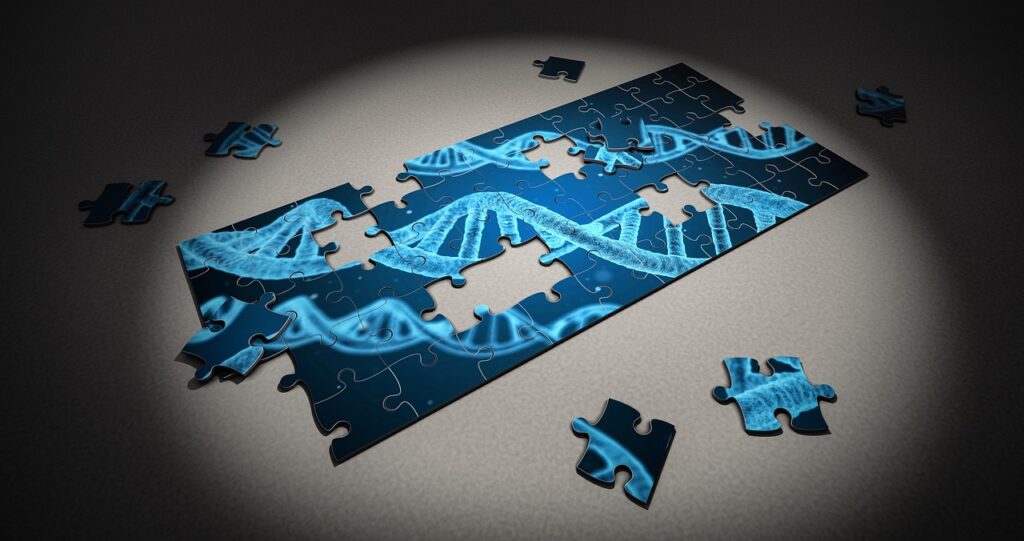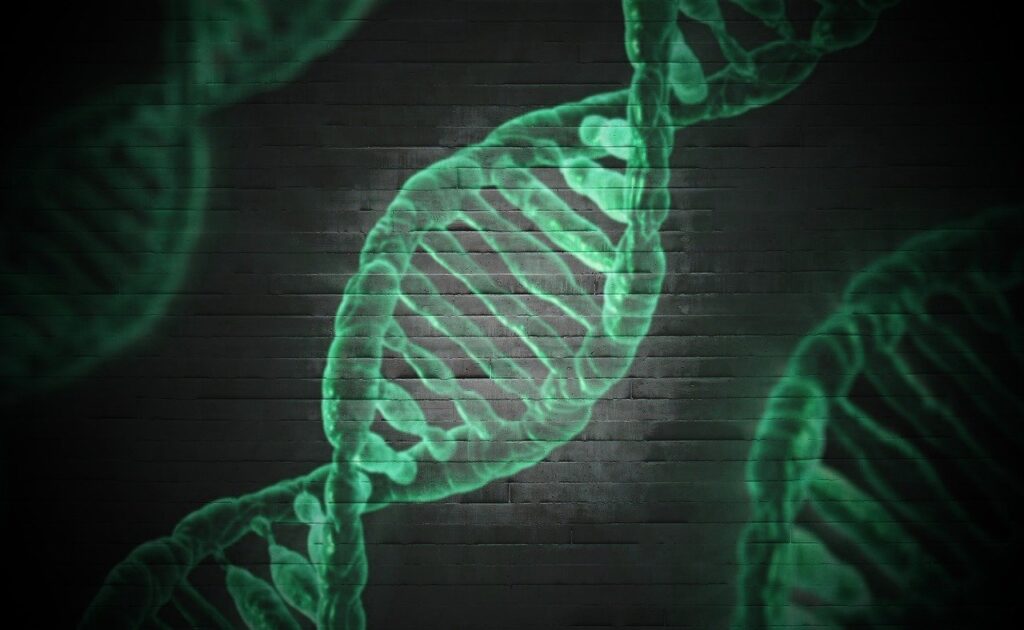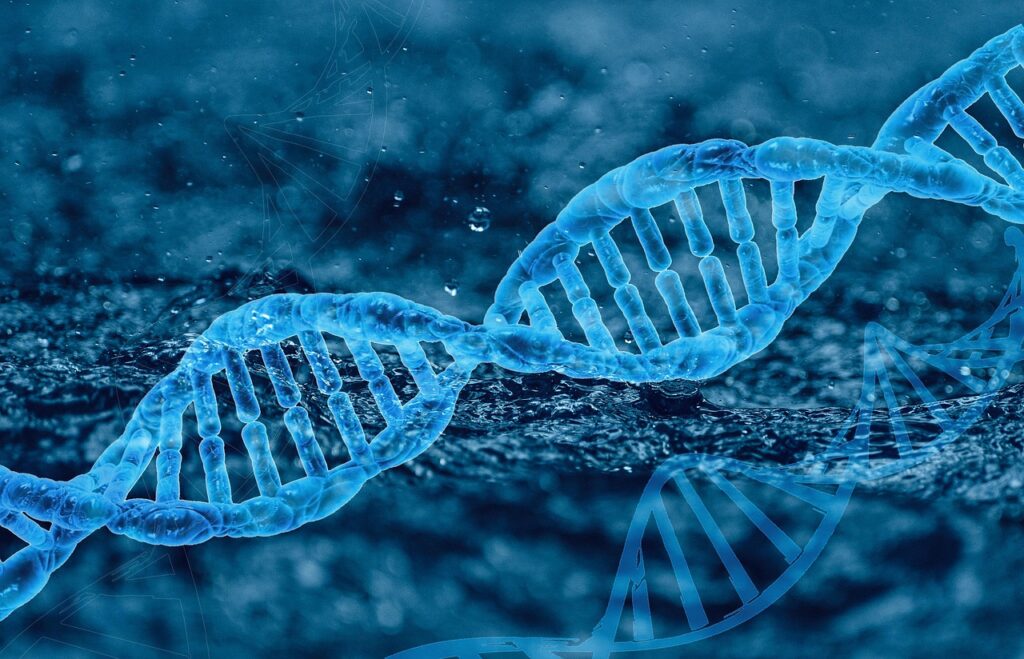Genetic counseling is a rewarding and in-demand career that plays a crucial role in helping individuals and families make informed decisions about their genetic health. In this section, we will explore the role and responsibilities of a genetic counselor and discuss the importance of pursuing a career in this healthcare field.
Undergraduate Pathways Into Genetic Counseling

MBA Degrees from LSU
Online Bachelor of Science in Biology with a Concentration in Modern Biology

MBA Degrees from FIU
Online Bachelor of Arts Biological Sciences

MBA Degrees from Liberty University
Bachelor of Science in Biomedical Sciences: General
Graduate Pathways in Genetic Counseling

MBA Degrees from Boise State University
Master of Science in Genetic Counseling

MBA Degrees from Rutgers University
Genetic Counseling Master’s Program

MBA Degrees from Southern California University of Health Sciences
Graduate Certificate in Pre-Genetic Counseling – Online
What is a Genetic Counselor?
A genetic counselor is a healthcare professional who specializes in providing guidance and support to individuals and families who may be at risk for inherited disorders or genetic conditions. They work closely with patients to assess their risk factors, explain complex genetic information, and help them make informed decisions about their healthcare options.
Role and Responsibilities of a Genetic Counselor
Genetic counselors have a wide range of responsibilities, including:
- Assessing risk: Genetic counselors evaluate an individual’s risk of developing certain genetic conditions or passing them on to their children. They gather detailed family and medical histories, analyze genetic test results, and provide personalized risk assessments.
- Providing education: Genetic counselors play a crucial role in educating patients about genetic conditions, inheritance patterns, and available testing options. They help patients understand the benefits, limitations, and potential implications of genetic testing.
- Counseling and support: Genetic counselors provide emotional support and counseling to patients and families throughout the genetic testing process. They help individuals cope with the psychological and emotional impact of genetic conditions, facilitate informed decision-making, and address concerns and questions.
Why Become a Genetic Counselor?
The field of genetic counseling is experiencing significant growth and offers numerous opportunities for those interested in a rewarding healthcare career. Here are some reasons to consider becoming a genetic counselor:
- Growing demand: With advancements in genetic testing and an increasing awareness of genetic conditions, the demand for genetic counselors is on the rise. They are integral members of healthcare teams, working alongside physicians and other professionals to provide specialized care.
- Helping individuals and families: Genetic counselors have the privilege of making a positive impact on the lives of individuals and families. By providing information, support, and guidance, they empower patients to make informed decisions about their genetic health and family planning.
- Advancements in genetic research: The field of genetics is constantly evolving, with new discoveries and advancements being made regularly. As a genetic counselor, you will have the opportunity to stay at the forefront of these developments and contribute to the field through research and education.
Remember, the field of genetic counseling offers a unique blend of science, compassion, and personal fulfillment. In the next section, we will delve deeper into the responsibilities and scope of practice of genetic counselors.
What Does a Genetic Counselor Do?
Genetic counselors play a crucial role in providing guidance and support to individuals and families who may be at risk for genetic disorders or have concerns about their genetic health. They work in various settings, including hospitals, clinics, and research institutions. Let’s explore the scope of practice, specializations within genetic counseling, and the work environment of genetic counselors in more detail.
Scope of Practice
Genetic counselors are trained professionals who offer expertise in a wide range of genetic conditions and concerns. They provide guidance in areas such as prenatal testing, cancer genetics, and pediatric genetics. By explaining complex genetic information clearly and compassionately, genetic counselors empower individuals and families to make informed decisions about their healthcare.
Specializations in Genetic Counseling
Genetic counseling is a diverse field with various areas of specialization. Some genetic counselors specialize in cardiovascular genetics, where they work with individuals who have a family history of heart-related conditions. Others may specialize in neurogenetics, focusing on genetic conditions that affect the nervous system. Reproductive genetics is another specialization, where genetic counselors assist individuals and couples in understanding the genetic risks associated with pregnancy and assist with family planning decisions.
Work Environment
Genetic counselors have the opportunity to work in different settings, depending on their specialization and career goals. Many genetic counselors work in hospitals, where they collaborate with medical professionals to provide comprehensive genetic counseling services. They may also work in clinics, where they offer genetic counseling support to patients with specific conditions or concerns. Additionally, genetic counselors contribute to research institutions, where they may participate in studies, clinical trials, and the development of new genetic testing methods.
By understanding the scope of practice, specializations, and work environment of genetic counselors, you can gain a deeper appreciation for the valuable role they play in the field of genetics. Whether you’re interested in prenatal testing, cancer genetics, or another area of specialization, a career as a genetic counselor offers the opportunity to make a meaningful impact on the lives of individuals and families. Stay tuned for the next section, where we will discuss the education requirements for becoming a genetic counselor.

Education Requirements for Genetic Counselors
To become a genetic counselor, individuals must meet certain education requirements. These requirements ensure that aspiring genetic counselors have the necessary knowledge and skills to excel in their field. The education requirements for genetic counselors include obtaining a bachelor’s degree and a specialized master’s degree in genetic counseling.
Bachelor’s Degree
Before pursuing a master’s degree in genetic counseling, it is important to complete a bachelor’s degree. The recommended undergraduate majors for aspiring genetic counselors are typically in biology, genetics, or a related field. These majors provide a solid foundation in the scientific principles and concepts that are essential for understanding genetic counseling.
During their undergraduate studies, students can expect to take courses in genetics, molecular biology, biochemistry, and psychology. These courses help students develop a strong understanding of genetics and human biology, as well as the ethical and psychological considerations involved in genetic counseling.
Master’s Degree in Genetic Counseling
After completing a bachelor’s degree, aspiring genetic counselors must obtain a specialized master’s degree in genetic counseling. This degree is crucial for developing the necessary skills and knowledge required to practice as a genetic counselor.
Obtaining a master’s degree in genetic counseling typically takes about two to three years. The program includes a combination of coursework and clinical training. The coursework covers topics such as human genetics, genetic counseling theory, ethics, and counseling techniques. It provides students with a comprehensive understanding of the field and prepares them to work with patients and families.
In addition to coursework, students also gain hands-on experience through supervised clinical rotations. These rotations provide practical training in various areas of genetic counseling, such as prenatal counseling, cancer genetics, and pediatric genetics. Through these clinical experiences, students develop the skills needed to effectively communicate complex genetic information, provide emotional support to patients and families, and make informed decisions regarding genetic testing and counseling.
Accredited Genetic Counseling Programs
It is important to choose an accredited genetic counseling program to ensure that the education received meets the standards set by the profession. Accredited programs have been reviewed and approved by the Accreditation Council for Genetic Counseling (ACGC), ensuring that they provide high-quality education and training.
Reputable institutions offer accredited genetic counseling programs across the country. These programs are typically housed within universities or medical centers and have a strong reputation within the field. Some well-known institutions offering accredited genetic counseling programs include the University of California, Los Angeles (UCLA), Johns Hopkins University, and the University of Michigan.
Online Options for Genetic Counseling Degrees
For non-traditional students or those who prefer flexibility in their education, online genetic counseling programs are available. These programs offer the same rigorous curriculum and training as traditional on-campus programs, but with the added convenience of online learning.
Online genetic counseling programs provide flexibility in terms of schedule and location. Students can access course materials and complete assignments at their own pace, allowing them to balance their education with other commitments. Additionally, online programs often offer opportunities for students to complete their clinical training in their local area, minimizing the need for relocation.
Overall, the education requirements for genetic counselors include obtaining a bachelor’s degree in a related field and a specialized master’s degree in genetic counseling. Accredited programs, both traditional on-campus and online, provide the necessary education and training to prepare individuals for a successful career in genetic counseling.

Certification and Licensure for Genetic Counselors
To become a genetic counselor, it is important to understand the certification and licensure processes involved in the field. These credentials not only validate your expertise but also ensure that you meet the standards set by professional organizations. In this section, we will explore the certification process and the importance of obtaining a state license to practice as a genetic counselor.
Certification Process
The certification requirements for genetic counselors are set by the American Board of Genetic Counseling (ABGC). This organization is responsible for establishing and maintaining the standards for the profession. To become certified as a genetic counselor, you must meet the following requirements:
- Education: You must have completed a master’s degree in genetic counseling from an accredited program. This specialized training equips you with the necessary knowledge and skills to provide genetic counseling services.
- Clinical Experience: In addition to your educational background, you must also complete a specified number of hours of supervised clinical experience. This hands-on training allows you to apply your knowledge in real-world settings and develop practical skills.
- Examination: After completing your education and clinical experience, you will need to pass the certification examination administered by the ABGC. This comprehensive exam assesses your understanding of genetic counseling principles and practices.
By successfully completing these steps, you can obtain certification as a genetic counselor and demonstrate your competence in the field.
Licensure
While certification is a crucial step in establishing your credentials as a genetic counselor, obtaining a state license is equally important. State licensure ensures that you meet the legal requirements to practice genetic counseling in a specific state. The requirements and process for obtaining a state license may vary depending on the state.
To obtain a state license, you will typically need to:
- Meet Education and Experience Requirements: States may have specific educational and clinical experience requirements that you must fulfill. These requirements are often similar to the certification requirements set by the ABGC.
- Pass a State Licensing Examination: Some states may require you to pass a state-specific licensing examination in addition to the certification exam. This exam assesses your knowledge of state laws, regulations, and ethical standards related to genetic counseling.
- Submit an Application: You will need to submit an application to the state licensing board along with the required documentation, such as your educational transcripts, certification information, and proof of clinical experience.
- Pay Licensing Fees: There may be fees associated with the licensing process, including application fees and annual renewal fees. These fees help support the regulatory oversight of the profession.
By obtaining a state license, you can legally practice as a genetic counselor and provide services to patients within the state.
Certification and licensure are important steps in the journey to becoming a genetic counselor. Certification through the ABGC validates your expertise and demonstrates your commitment to the profession. Obtaining a state license ensures that you meet the legal requirements to practice genetic counseling in a specific state. By completing these processes, you can establish yourself as a qualified and trusted professional in the field of genetic counseling.

Career Opportunities and Outlook for Genetic Counselors
The field of genetic counseling offers promising career prospects and a wide range of job opportunities. As genetic testing and personalized medicine continue to advance, the demand for genetic counselors in healthcare is on the rise. This section will explore the job prospects and salary potential for genetic counselors, highlighting the various settings in which they can work.
Job Prospects
Genetic counselors are in high demand, with job opportunities available in hospitals, research institutions, private practices, and other healthcare settings. As the field of genetics expands, genetic counselors play a crucial role in providing guidance and support to individuals and families seeking information about their genetic health. They work closely with healthcare professionals to help patients understand their genetic test results, make informed decisions, and navigate the complexities of genetic conditions.
Highlight the Job Opportunities
Genetic counselors have the opportunity to work in a variety of settings, each offering unique challenges and rewards. Hospitals provide a fast-paced environment where genetic counselors collaborate with medical teams to provide genetic counseling services to patients. Research institutions offer opportunities to contribute to cutting-edge research and advancements in the field of genetics. Private practices allow genetic counselors to work more independently and build long-term relationships with patients and families.
Salary Potential
The average salary range for genetic counselors can vary depending on factors such as experience, geographic location, and the specific setting in which they work. According to the Bureau of Labor Statistics, the median annual wage for genetic counselors was $89,990 as of May 2022. However, it’s important to note that salaries can vary significantly based on factors such as years of experience, additional certifications, and the demand for genetic counselors in different regions.
Factors Impacting Salary
Experience plays a significant role in determining the salary of a genetic counselor. Those with more years of experience and specialized knowledge may earn higher salaries. Geographic location also affects salary, as the demand for genetic counselors and the cost of living can vary from one region to another. Additionally, genetic counselors who hold additional certifications or specialize in high-demand areas, such as cancer genetics or prenatal genetics, may have the potential to earn higher salaries.

Skills and Qualities of a Genetic Counselor
One of the most important qualities of a genetic counselor is compassion and empathy. Genetic counselors work with individuals and families who may be facing difficult genetic diagnoses or decisions. Genetic counselors must possess a deep sense of compassion and empathy to provide emotional support during these challenging times. They must be able to listen attentively, show understanding, and offer comfort to patients and their families.
Communication Skills
Effective communication is a fundamental skill for genetic counselors. They need to be able to explain complex genetic information in a way that patients can understand. Genetic counselors must possess excellent verbal and written communication skills to convey genetic concepts, test results, and potential risks clearly and concisely. They should be able to adapt their communication style to suit the needs and comprehension levels of their patients.
Analytical and Problem-Solving Skills
Genetic counselors need strong analytical and problem-solving skills to interpret genetic test results and develop appropriate counseling plans. They must be able to analyze complex genetic data, identify patterns, and draw meaningful conclusions. Genetic counselors also need to think critically and creatively to solve problems that may arise during the counseling process. By utilizing their analytical and problem-solving skills, genetic counselors can provide accurate and personalized recommendations to their patients.
Ethical Considerations
Ethics play a significant role in the practice of genetic counseling. Genetic counselors have ethical responsibilities, such as maintaining patient confidentiality and ensuring informed consent. They must uphold the highest standards of professional conduct and adhere to ethical guidelines set by professional organizations. Genetic counselors must navigate complex ethical dilemmas, such as balancing patient autonomy with the best interests of the patient and their family. They must possess a strong moral compass and the ability to make ethical decisions in challenging situations.
In addition to these essential skills and qualities, genetic counselors also benefit from having a solid foundation in genetics and counseling theories. They need to stay updated with advancements in genetic research and technologies to provide the most accurate and up-to-date information to their patients. Furthermore, genetic counselors often work as part of a multidisciplinary team, collaborating with other healthcare professionals to provide comprehensive care to patients.
Ready to Kickstart Your Career as a Genetic Counselor?
Becoming a Genetic Counselor can be a fulfilling and rewarding career choice. Throughout this blog, we have explored the role and responsibilities of Genetic Counselors, the education and certification requirements, as well as the skills and qualities needed to excel in this field. Genetic Counselors play a crucial role in helping individuals and families make informed decisions about their genetic health. They provide support, guidance, and education to patients in various areas such as prenatal testing, cancer genetics, and pediatric genetics. With the growing demand for Genetic Counselors in healthcare, pursuing a career in this field can offer excellent job prospects and opportunities for professional growth.
Remember, genetic counseling is a dynamic and growing field that combines science, compassion, and innovation. By pursuing this career, you can make a significant impact on individuals and families, helping them navigate the complexities of genetic health. So, if you have a passion for genetics and a desire to help others, consider becoming a Genetic Counselor and embark on a rewarding and fulfilling career path.
Resources for Aspiring Genetic Counselors
National Society of Genetic Counselors: https://www.nsgc.org/
